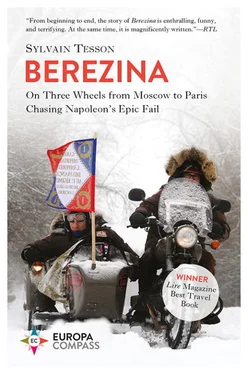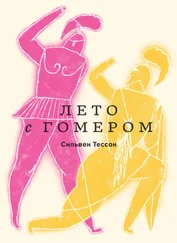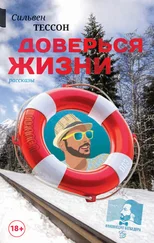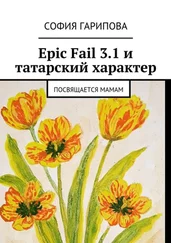Ney perched on the other side of the river, the prow light of a destroyed army. Of the four hundred and fifty thousand soldiers at the start of the invasion, two hundred and fifty thousand had died in battle, and two hundred thousand had been made prisoners. The Russians had lost three hundred thousand of their men.
The invasion of Russia had been devised in order to build peace on the continent. It was the first step toward the fall of the First French Empire. Six months earlier, the army had crossed this same river, in the June sun, all aquiver, accustomed to glory and ready to fight as far as the sands of the Gobi Desert, “with hearts beating with joy and pride,” writes General Louis-François Lejeune. On that June 24th, the gates of hell had worn their most attractive finery to entice the army. Then they had shut behind it.
There was, in the eddies of the Neman, a premonition of the choppy waves of Saint Helena.
At the fork of the south exit from Vilnius, we headed in the direction of Marijampolė. Instead of following the calvary of those 1812 wretches through Kaunas, we decided to drive southwest, behind the fleeing Emperor. It was in Kaunas that Caulaincourt decided to go to Marijampolė and travel through the Grand-Duchy of Warsaw. He thought this route would be safer, albeit longer. Napoleon did not trust Prussia.
“Tesson!” Goisque shouted on a slope.
“Yes?”
“What’s a sleeper?”
“I think it’s a kind of litter, with wheels.”
“What do you mean?”
“A litter with wheels.”
“Like a Ural sidecar?” he said.
“That’s right. With tasseled curtains and embroidered cushions.”
It’s History’s most exclusive psychoanalysis session. A sovereign of unequalled power was about to confide, during almost two weeks at 4°F, to the Grand Squire, lying in a sleeper drawn by six Lithuanian horses, under the protection of a Mameluke, a few officers, and a handful of piqueurs . By leaving the theater of misfortune, Napoleon was warding off the failure of the Russian campaign. Body and soul, he was reaching out for Paris, in other words, for the future.
After their departure from Smorgon on December 5th, the Emperor and Caulaincourt glided non-stop along the snowy roads of the Grand-Duchy of Warsaw, Prussia, Saxony, and Westphalia. They traveled incognito. They changed from litters to carriages and mail coaches at random. They ended up shaking off most of their escort. It took them thirteen days to go from Smorgon to Paris: a speed record, if we think about the fifteen hundred miles through the snow! And it was still too slow! Throughout the entire journey, Napoleon, a man in a rush, hassled the piqueurs, rushed his meals, galvanized the landlords of the coach inns. Faster! Faster! he seethed. He wanted to see the Empress again. He wanted to reassure his government. He wanted to strengthen his position at the head of the empire. Sometimes, refusing to get out of his carriage, he would swallow a cup of tea and dictate a few letters while the postilions changed his horses. Since his ascent, at military school, Men had never been fast enough for him. And now this damned carriage ride back was dragging through forest tracks of his Empire! He, who loved to rule over History, would have liked to shrink Geography. For six months, he had procrastinated before Alexander, hesitated in Vilnius, dawdled in Moscow. On his way back, he was recovering his dazzling speed.
Already on the first night, the cold made them suffer. The temperatures didn’t get milder until Fulda, in Westphalia. However much the Grand Squire covered him with his bearskin, “the Emperor was shivering.” On the escarpment of Marijampolė, they had to get off and push the carriage to the top of the slope. Did Napoleon help? At the Gragow post house, Caulaincourt bought one of those covered sleighs, fixed on skates, that “flew along the surface.” In Pułtusk, moved by the modesty of a servant girl, the Emperor gave her a few gold coins together with this pre-Marxist thought: “In this class, you could make many people happy with a little money.” In Warsaw, suddenly seized by a sovereign whim, he insisted on entering the city on foot, “very curious to see if he would be recognized.” In Kutno, one of the sleigh shafts broke, and it took two hours of DIY to repair it, during which Napoleon took advantage to sample the conversational charms of the sub-prefect’s wife and sister-in-law—very attractive Polish women. Before entering Prussia, he checked that his pistols were in good working order. “In case of certain danger, kill me rather than let me hang,” he had told his officers before leaving. In Poznań, going back on the route of the army, Caulaincourt could receive the courier dispatches, which Napoleon would devour, reproaching his Grand Squire for never breaking the seals fast enough. In Dresden, the King of Saxony lent his beautiful Berline but its skates broke between Lützen and Auerstaedt, so they had to enter Vigenov in “the modest post coach” before leaving in “a carriage Monsieur de Saint-Aignan had arranged in such a way that the Emperor could lie down in it.” In Leipzig, Napoleon took a nap on a few chairs lined up near a stove, before he noticed he was being watched by a spy. Farther on, in Eisenach, Caulaincourt uncovered an ambush and obtained fresh horses by threatening with his sword the landlord of coach inn who was grumbling he couldn’t supply them. When they reached the banks of the Rhine, they noticed that the river was still carrying ice. The boat bridge hadn’t been set up yet, so they had to cross in a small boat. In Saint-Jean-les-Deux-Jumeaux, the two men got into a small, open cabriolet in which they continued “at the speed of hell.” In Meaux, they jumped into a post chaise “that could shut firmly” and it was in this contraption that, at a quarter to midnight on December 18th, they reached the Tuileries. Caulaincourt knocked on the door of the gallery that opened onto the garden, and the hall beadle had the good sense to choose not to recognize the Emperor and his Grand Squire in these two muddy, bearded ghosts in fur-lined boots!
Thus ended one of the most formidable games in the history of open-air sports. Caulaincourt went to the Empress’s duty staff, and the ladies nearly passed out before this specter who, in addition, announced the return of the Emperor. Finally, unable to bear it any longer, Napoleon rushed to the Empress and rewarded Caulaincourt for his four years as Ambassador to Saint Petersburg, four months of war, two months of rout, and two weeks of galloping, with a magnanimous, “Goodnight, Caulaincourt. You also need some rest.”
“You couldn’t ride back from Smorgon in thirteen days now,” I said to Goisque in the service station on the road to Marijampolė.
“Why? Do you want us to try?”
“Because the forests are interrupted by highways, the fields by barbed wire, and the plains by canals.”
“We’re no longer in the days of horse-riding Europe. The car has triumphed.”
“And yet Gouraud managed it.”
In 1990, the writer Jean-Louis Gouraud had traveled from Paris to Moscow on horseback. He had been welcomed in triumph on Red Square and had made a gift of his mount to Raisa Gorbachev. We had boundless admiration for the author of this trek undertaken with a bridle across the countries of the Warsaw bloc. Even though we suspected he had organized his adventure solely for the pleasure of being able to boast that he had “ridden through the Iron Curtain on horseback.”
“It took him seventy-seven days,” Goisque said.
“Yes, but he had no Grand Squire to prepare the legs of his journey.”
During these solitary hours across snowy fields, Napoleon talked to Caulaincourt. He talked as though words transcended the nightmare, and kept ghosts away. He talked as though to free himself. And Caulaincourt took on the role of court clerk in this conversation that was actually more of a monologue. The Grand Squire took “rushed” notes, he says, without respite. At the relay station, next to a stove in the inn, while Napoleon slept or had dinner, under his bearskin, his fingers numbed from the cold, he would take notes. And the hundred or so pages, to which he gave the title of On a Sleigh with the Emperor , became one of the most unclassifiable confessions of a head of state. Did Napoleon manipulate his Grand Squire? Did he know that his words would immediately be published? Was he rehearsing The Memorial of Saint Helena three years before its time? Whatever the case may be, he was aware of the strange atmosphere of this confession, since he stressed to Caulaincourt that “never has a man had such a long tête-à-tête with his sovereign…”
Читать дальше












